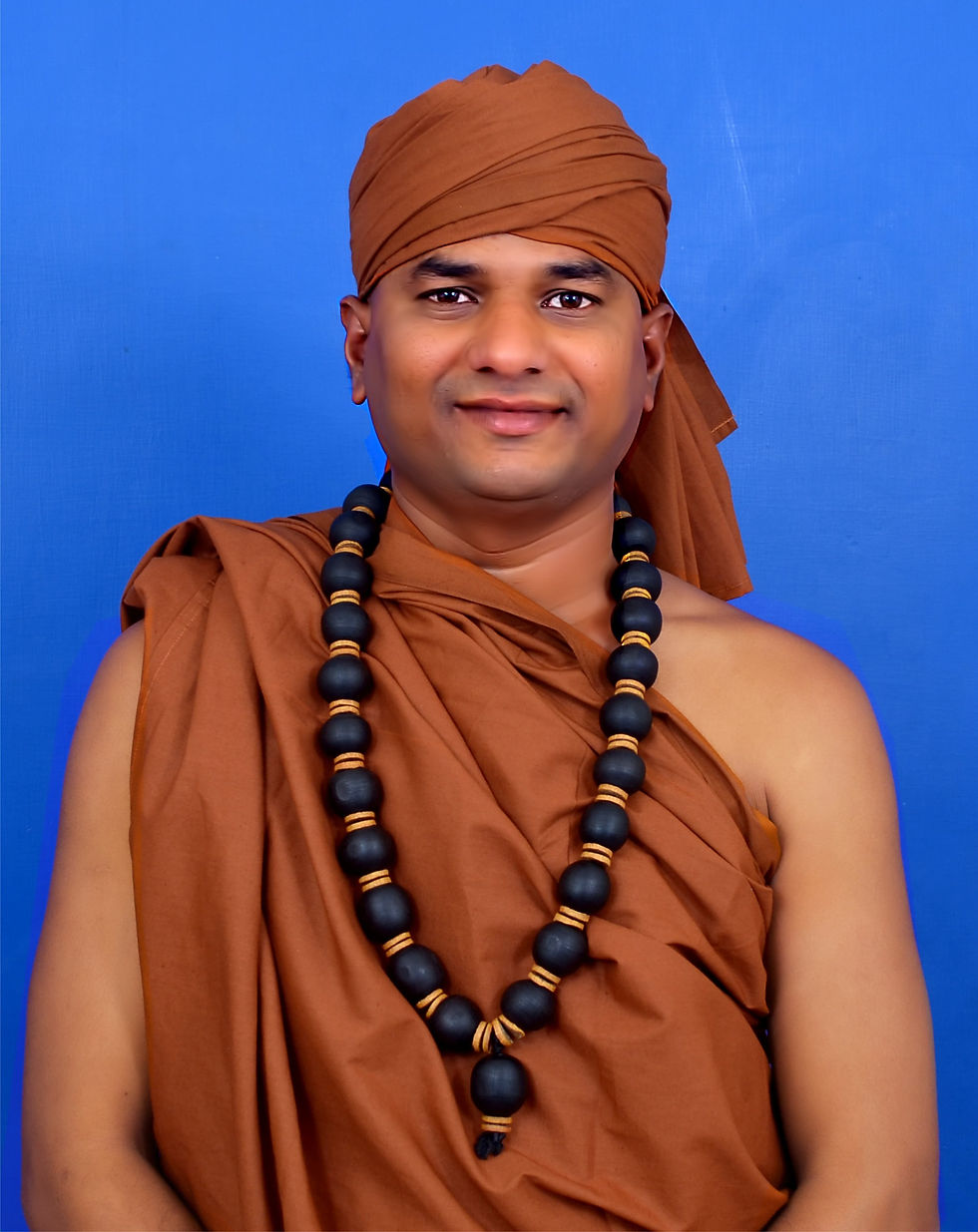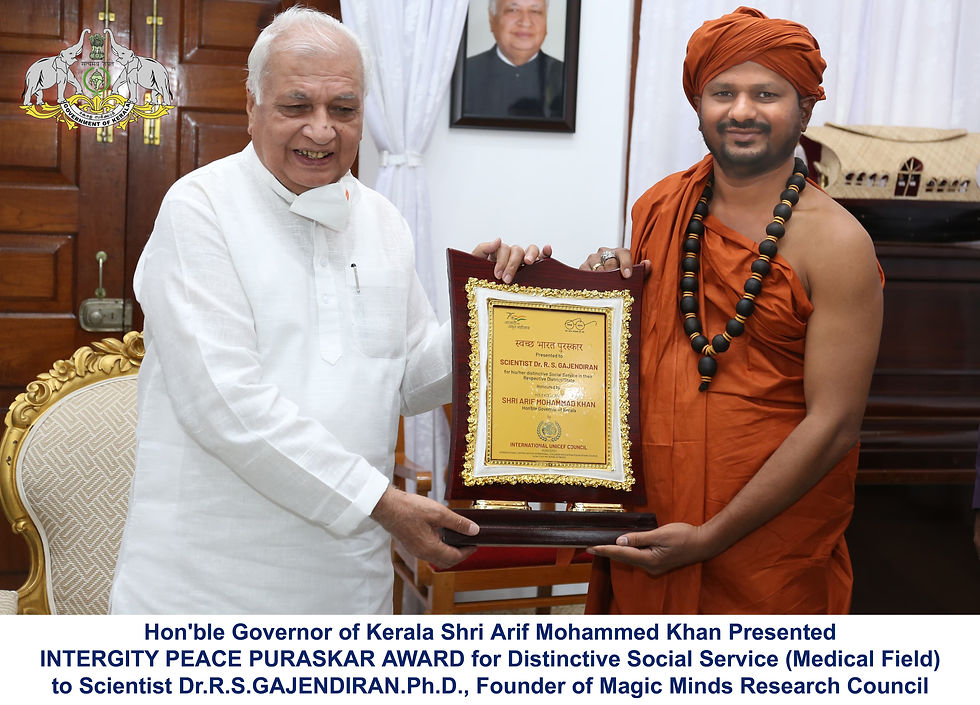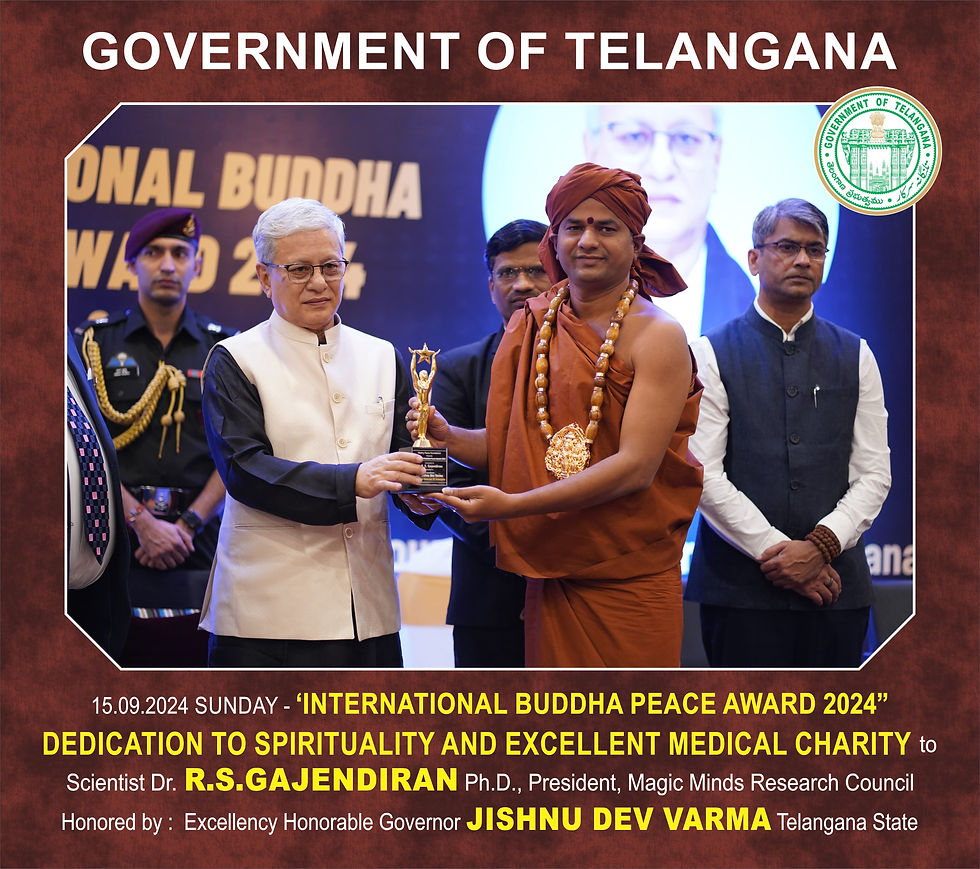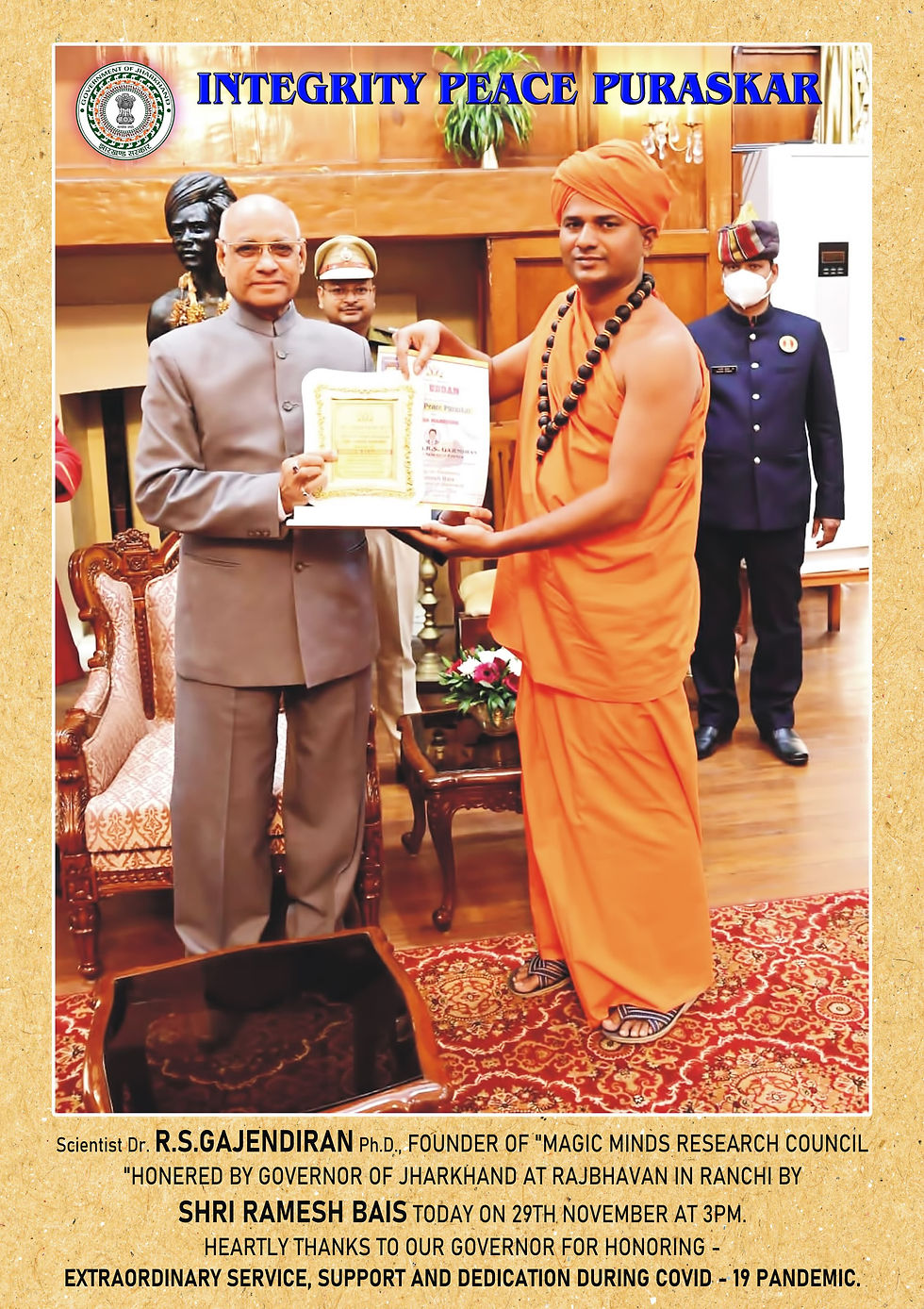By S. Adam Jadetimes Contributor

DIVINE MEIDCAL SCIENTIST : MAGIC MINDS RESEARCH COUNCIL Founder
Scientist Dr. R. S. GAJENDIRAN ’s Groundbreaking Contributions
Director, United Nation International Peace Council, Nigeria.
Registrar, Sanskrit Ancient yoga University, Germany.
Research Scientist : World Health Organization, Geneva, Switzerland
In a world where health and wellness are evolving into multidimensional disciplines, the demand for holistic approaches to healthcare has never been greater. Amongst's the vanguard of this movement is Dr. R. S. Gajendiran, a pioneering figure from Tamil Nadu, India. Dr. Gajendiran's groundbreaking integration of herbal medicine with spiritual practices has redefined how individuals and communities perceive health, making him a celebrated authority in the field of alternative medicine.
A Unique Blend of Science and Spirituality
Dr. Gajendiran’s work stands apart due to his ability to seamlessly blend scientific principles with spiritual wisdom. With an academic foundation rooted in Food and Health studies from Stanford University, he brings a rigorously scientific perspective to his practices. This is complemented by years of meticulous research and hands-on experience, positioning him as an unparalleled expert in herbal medicine. His methods not only resonates with traditionalists but also appeals to those seeking evidence-based solutions in the realm of alternative healthcare.
Mastering Chakra Balancing for Holistic Wellness

Central to Dr. Gajendiran’s approach is Chakra Balancing, an ancient practice emphasizing the body’s energy centers and their critical role in overall health. Stress, anxiety, and modern lifestyles often disrupt this energy balance, leading to a host of physical and emotional ailments. Through personalized techniques, Dr. Gajendiran restores harmony to these chakras, enabling individuals to achieve a profound sense of physical, emotional, and spiritual well-being.
Advancing Mind-Body Medicine


Another hallmark of Dr. Gajendiran’s expertise lies in Mind-Body Medicine, a discipline that underscores the profound influence of psychological and emotional states on physical health. Drawing from his extensive research, he has developed holistic interventions that address the interplay between the mind and body. His techniques empower patients to actively participate in their healing journey, fostering resilience and self awareness.
Bridging Ancient Wisdom and Modern Science
Dr. Gajendiran’s work is deeply rooted in historical research, where he unearths connections between traditional herbal remedies and contemporary health sciences. By bridging these domains, he has reintroduced the timeless relevance of ancient healing methods into modern practices. His innovative perspective not only revitalizes interest in traditional medicine but also inspires modern practitioners to adopt a more integrative approach.
A Comprehensive Approach to Healthcare
Dr. Gajendiran’s philosophy extends beyond isolated practices like Ayurveda or herbal supplementation. His methodology recognizes health as a dynamic interplay of physical, emotional, and spiritual dimensions. Tailoring his treatment plans to each individual’s unique physiology and needs, he ensures a comprehensive and personalized approach to healing.
Inspiring a Broader Movement

Dr. Gajendiran’s influence transcends his clinical practice. As a mentor and Scientist for holistic health, he inspires both practitioners and the public to embrace natural solutions to healthcare challenges. His emphasis on education and community engagement fosters a greater understanding of the benefits of alternative medicine, encouraging a collective shift toward more sustainable and integrative health practices.
A Vision for the Future of Wellness

As the global health landscape increasingly embraces holistic paradigms, Dr. R. S. Gajendiran remains a trailblazer in the integration of herbal medicine and spiritual guidance. His research, practices, and advocacy serve as a beacon for those seeking to enhance their well-being naturally and sustainably. By drawing from the wisdom of nature and spirituality, Dr. Gajendiran offers a pathway for individuals to rediscover balance, vitality, and inner peace in an often chaotic world. In an era defined by rapid change and rising stress, the transformative work of Dr. Gajendiran exemplifies the potential of holistic health to nurture not only the body but also the mind and spirit. His contributions remind us that true wellness lies in embracing the interconnectedness of life’s many facets
Other News About Dr. R. S. Gajendiran


